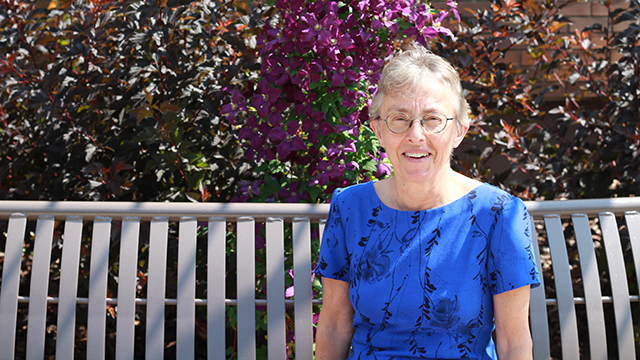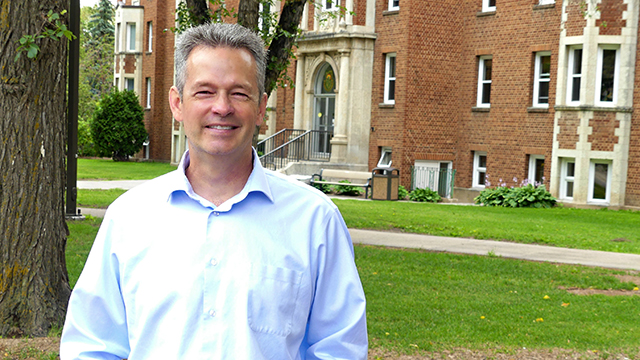
New funding will help Vickie Baracos learn more about the cause and potential treatments for cancer cachexia.
Cancer research at the University of Alberta is getting a boost thanks to new federal funding.
Vickie Baracos and Kerry Courneya, both Cancer Research Institute of Northern Alberta (CRINA) members, received Canadian Institutes of Health Research (CIHR) Foundation Grants totalling more than $4 million over seven years.
Their research projects Cachexia, The Last Illness, by Baracos, and Physical Activity and Cancer Outcomes, by Courneya, will help advance U of A research excellence in supportive and palliative oncology.
"This is an absolutely brilliant place to do cancer research, with top cancer research infrastructure, the Alberta Cancer Registry, and an open-mindedness of physicians and basic scientists toward collaborative investigation," said Vickie Baracos, a professor in the Faculty of Medicine & Dentistry's Department of Oncology.
The Foundation Grant program was designed to contribute to a sustainable foundation of established health research leaders, by providing long-term support for the pursuit of innovative, high-impact research.
Stopping cancer cachexia
Baracos, a professor in the Department of Oncology's Division of Palliative Care and Alberta Cancer Foundation Chair in Palliative Oncology, studies cancer cachexia-the wasting away of body mass and muscle caused by chronic illness. Cachexia is associated with toxicity following chemotherapy and causes patients to become weak, frail and increasingly dependent on others for daily tasks and self-care.
The grant allows Baracos to take a multifaceted approach to researching cancer cachexia, ranging from basic science inquiry to clinical science and interventions. Among her goals is to determine the cause, so chemotherapy doses could be modified for patients with cachexia in the future.
"When I started researching cancer cachexia, there were no societies or research groups. It's a young and fledging research area and collaboration will be crucial to research success," she said.
Baracos, recognized as an expert in the area, was recently lead author onNature Reviews Disease Primer on cancer cachexia.
Examining the role of exercise intervention in cancer care

A Foundation Grant from CIHR will help Kerry Courneya study the impact of exercise on cancer.
Kerry Courneya, professor in the Faculty of Kinesiology, Sport, and Recreation and Canada Research Chair in Physical Activity and Cancer, is studying the effect exercise has on cancer.
In the early '90s, Courneya shifted his research from looking at quality of life and symptom management, to measuring whether exercise can have an impact on disease progression, recurrence and long-term survival.
"When I started, the available research was looking at exercise to prevent cancer. I was interested in the post-diagnosis side, and started asking questions about the role of exercise for someone who has already been diagnosed with cancer," said Courneya,
The CIHR Foundation Grant brings together a series of studies that will help determine if exercise can lower the risk of cancer recurring and improve the effects of treatment and overall survival. Courneya believes the grant provides critical funding necessary for the success of the long-term studies.
Building research success with the support of partners
Courneya credits pan-faculty collaboration for making his research program possible.
"We have strong people in kinesiology and strong partnerships in oncology. I need the full support and collaboration from oncologists," said Courneya.
Partnerships with oncologists and other physicians allow the researchers to embark on clinical trials. Both Baracos and Courneya are thankful for the Cross Cancer Institute being on campus and engaged in clinical trials.
"The Cross Cancer Institute has a very strong culture of clinical trials, they are very keen to do clinical trials and make sure their patients have access to them," said Courneya. "They have really facilitated my research program of exercise in cancer patients."